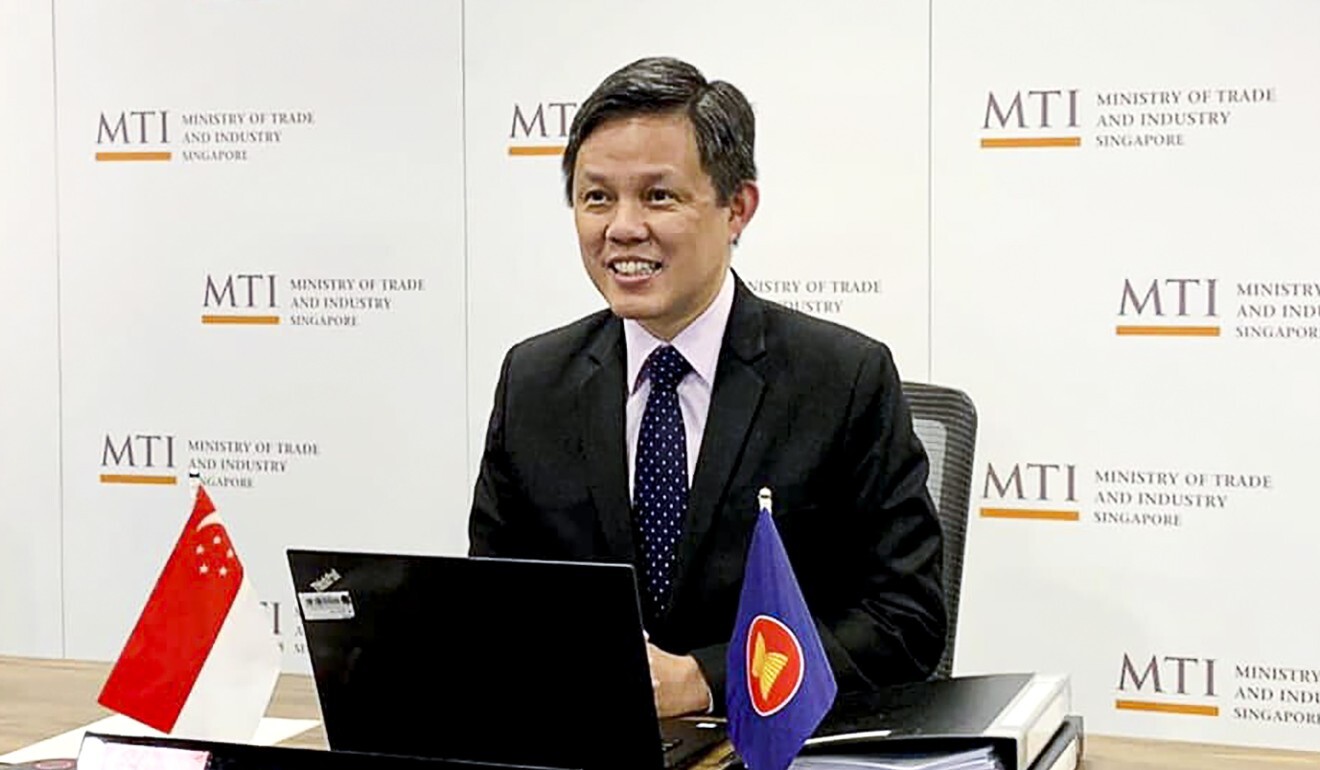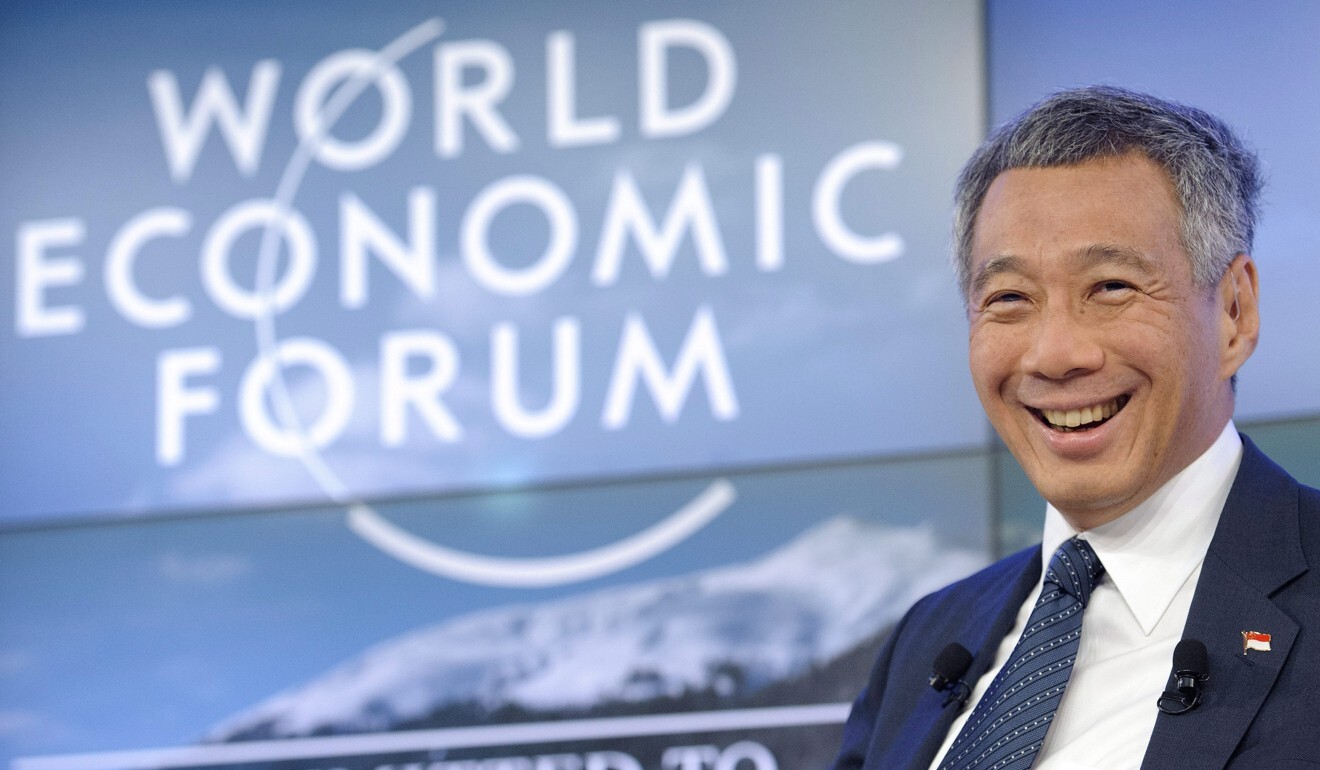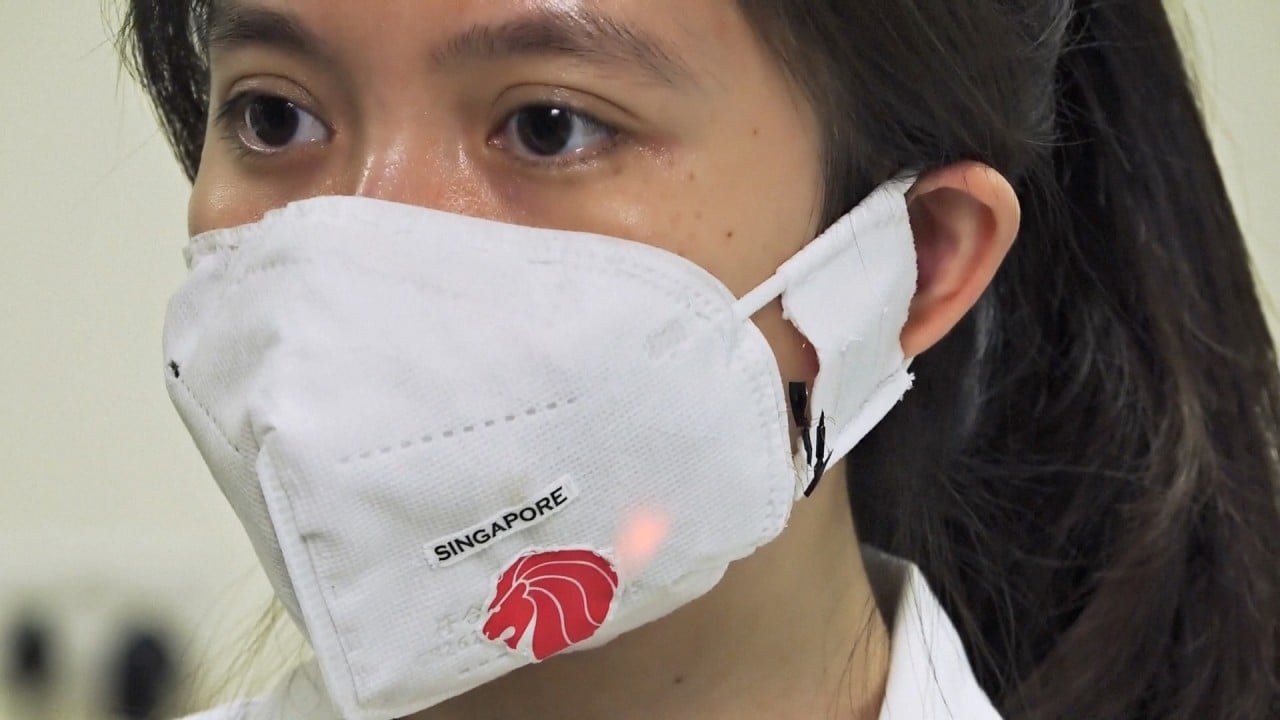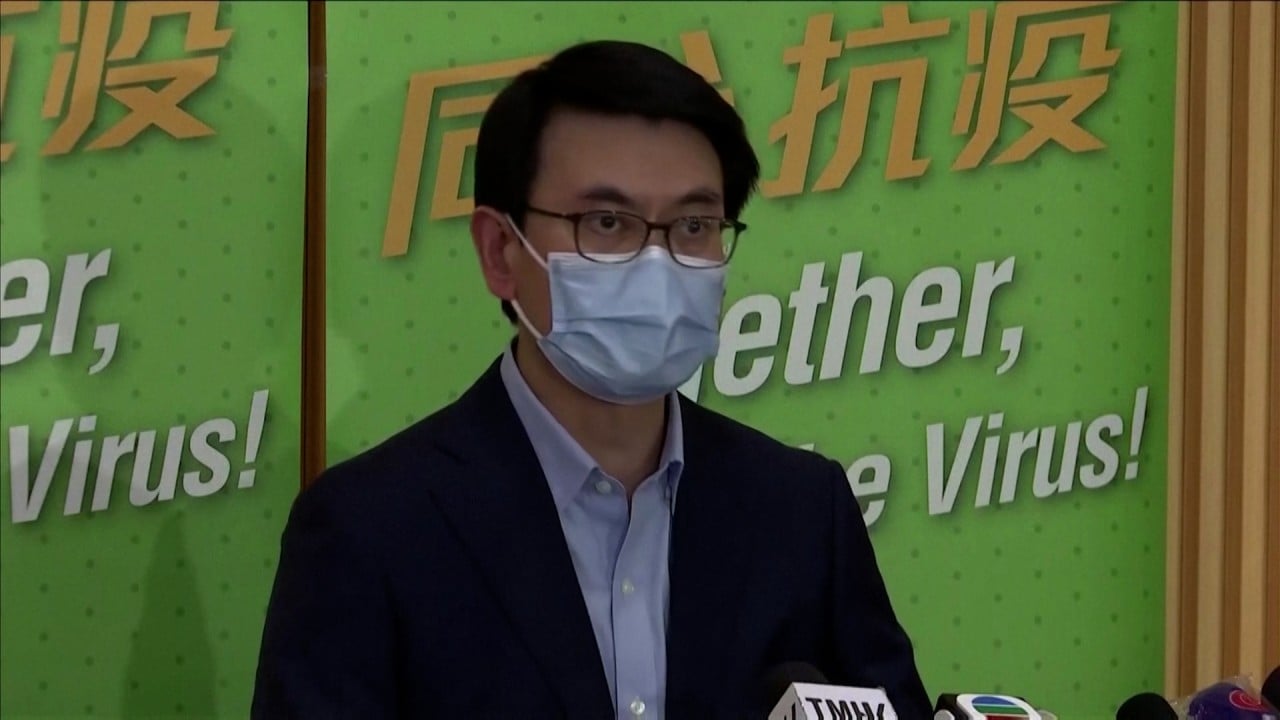
World Economic Forum: a calculated risk for Covid-safe Singapore
- The forum’s switch from Davos, Switzerland, to the Southeast Asian country is a PR coup and promises a boon for the troubled business tourism sector
- But as the shelved Singapore-Hong Kong travel bubble shows, Covid-19 fortunes are fickle and an international conference is a ‘high stakes event’

When news broke this week that the World Economic Forum was trading the snowy alps of Davos, Switzerland, for the tropics of Singapore it was widely seen as a public relations coup for the island nation and a testament to its handling of the coronavirus outbreak.
But the one-off switch in location for the forum’s Special Annual Meeting in May 2021 was also seen as something more: a shot in the arm for the section of Singapore’s tourism industry known as “Mice”, or meetings, incentives, conferences and exhibitions.
Singapore’s S$3.8 billion (US$2.8 billion) Mice industry, which supports about 34,000 jobs and accounts for nearly 1 per cent of gross domestic product, has been hit hard as the coronavirus pandemic puts the brakes on international travel.
The city state suspended all mass participation events in March, but has recently been ramping up efforts to restart the sector, allowing events of up to 250 people to take place from October. While it has already seen limited success, with some government-run conferences having already taken place, hosting the WEF forum is a breakthrough on an entirely different scale.
The event, which each year attracts about 3,000 of the world’s heads of state and other movers and shakers in the business world, has been held outside Davos only once in its 49-year history.

Lawrence Loh, an associate professor of business administration at the National University of Singapore, said the news was “a very significant vote of confidence” in Singapore’s handling of the pandemic and one that would create an “immediate multiplier effect” as other organisers began to see the city state as offering a safe haven during the pandemic.
For Singapore, it is also something of a public relations victory and a reversal of its fortunes earlier this year when the country of 5.7 million people suffered a surge in coronavirus infections as the disease swept through accommodation housing its low-wage migrant worker population. In April, Singapore had just 1,000 infections. Now, it has more than 58,000; 29 people have died and 28 are in hospital.
In recent months, however, the disease has been brought under control with just six cases found within the community out of the past two weeks.
SELLING POINT
The WEF had previously announced it would be relocating the meeting from Davos to Lucerne-Buergenstock, also in Switzerland, and halving the number of attendees.
However The WEF’s president, Borge Brende, said in an internal email that health and safety concerns over the Covid-19 situation in Europe had made it impossible to continue with that plan and that Singapore had been chosen as an alternative because it had been successful in dealing with the pandemic.
That has given the Singapore government a strong selling point for its Mice industry and boosted its confidence in its attempts to restart the sector.

Speaking at TravelRevive, a two-day event last month aimed at re-energising tourism, Trade and Industry Minister Chan Chun Sing said Singapore was “not going to play defensive by just trying to get back to where we were” in the Mice sector. Rather, said the minister, Singapore would establish itself as a safe and secure meeting place for businesses amid the pandemic.
The Singapore Tourism Board is closely involved in the effort and is helping organisers fine-tune safety measures. It has also created a programme for international delegates to explore the city after conference hours.
Some events have already started.
The Milken Institute’s Asia Summit, which started on December 8 and runs to December 10, hosted a variety of virtual and in-person events at the Sands Expo and Convention Centre. Its 200 in-person attendees had to take a rapid antigen test in the morning before entry and were then split into groups of 50 who could not mingle with other groups. Attendees were also required to download the TraceTogether app on their smartphones or hold tokens. Masks and social distancing measures were also obligatory.
Chan outlined his vision for how Singapore could do Mice in his opening remarks for the summit that was broadcasted virtually.
“The world can safely hold meetings in Singapore, even if countries are unable to connect directly. Instead, everyone can connect in Singapore, through Singapore, and on the Singapore platform,” he said.
Laura Deal Lacey, Executive Director of the Milken Institute Asia Center, said it had decided to run a hybrid event instead of an entirely virtual one “because we believe that this model is the future of events”.

Indeed, the approach enabled the institute to reach more people than before. Last year’s event hosted 1,600 people at the Four Seasons Hotel and Hilton Hotel in Singapore. This year, with the bulk of the 30 sessions and 22 fireside chats online, Lacey had expected a global audience of thousands watching the event online.
But there was a downside too.
Lacey said hybrid events were more complex to organise, as the different formats, testing regimes and Social distancing measures all needed coordination. Concerns about the safety of employees and participants were an added consideration.
And the human element was missing. “It is still difficult to recreate online the ad hoc conversations and meetings that participants would have at an in-person event. Online programmes are great for sharing content and viewpoints but less conducive to creating new one-on-one connections,” said Lacey.
Even Singapore’s Prime Minister, Lee Hsien Loong, has acknowledged that informal in-person interactions are crucial for getting to know new contacts. “The chance to chat, a bit of corridor serendipitous meeting, when you just bump into somebody and you have a useful exchange and he picks up something useful, or you share a titbit of information … you do need to engage in person for him to know what you are like, and for you to feel what he is like, and become comfortable with one another,” said Lee at the Asia-Pacific Economic Cooperation CEO Dialogues last month.

01:27
Smart masks from Singapore can help monitor patients for signs of illness including Covid-19
DOUBTS, FOR SOME
Still, not everyone is convinced that even partially in-person events are a good idea.
The Singapore Fintech Festival, which runs until December 11, is entirely online this year. The Medical Fair Asia, which since 1997 has been alternating between Singapore and Bangkok, is also going fully digital this year.
Gernot Ringling, managing director of Messe Düsseldorf Asia, which organises Medical Fair Asia, said the situation was always “dynamic and fluid”. Until March, he had been hopeful about running a physical trade fair in September but on a smaller scale and accompanied by a digital component, but it soon became clear “that a physical exhibition was not possible”.
“For Medical Fair Asia, where traditionally more than 40 per cent of visitors come from outside Singapore, pivoting to a digital format for the exhibition which opens next week was the clear choice,” Ringling said.
Likewise, Neo Yong Aik, chief executive of events company Neo.tm which helped organise the Asia Clean Energy Summit in October – an event under the Singapore International Energy Week – said his clients did not plan on live events until the second quarter of next year.
“Because virtual events have proven to have higher engagement value and they can reach more people. The question then is, do I want to spend S$100,000 to run such a show instead of S$20,000 to run a virtual event? There’s always this struggle,” he said.
Cost aside there is also the consideration that a country’s Covid-19 fortunes can turn quickly.
Singapore itself had a reminder of this when its much-heralded quarantine-free travel bubble with Hong Kong had to be shelved just a day before it was to go live on November 22 after a spike in cases in Hong Kong.

01:25
Hong Kong-Singapore travel bubble postponed for two weeks
Referring to the hosting of the WEF meeting, Dr Hsu Li Yang, an infectious diseases doctor who is also associate professor at National University of Singapore’s (NUS) Saw Swee Hock School of Public Health, cautioned: “We can never be absolutely sure that numbers here can be kept low until May.”
Hsu cited how Hong Kong had recently entered a fourth wave of the disease and how South Korea also had initial success in controlling the virus that was “quickly reversed by subsequent waves of infection that proved more difficult to control”.
Hsu said even a scaled down World Economic Forum would be a “high stakes event”, while Dr Jeremy Lim, associate professor at the Saw Swee Hock School of Public Health, called it a “calculated risk”.
Lim said there was a risk of reputational damage if the virus situation in Singapore deteriorated between now and May, especially as there was a chance it could become a “global super spreader” as its guests returned to “all corners of the globe”.
But this was a gamble the city state had to make, said Lim.
“Singapore is Singapore because we were, are, and have to be bold. As a senior civil servant shared, ‘Singapore is exceptional or it is dead’,” he said.